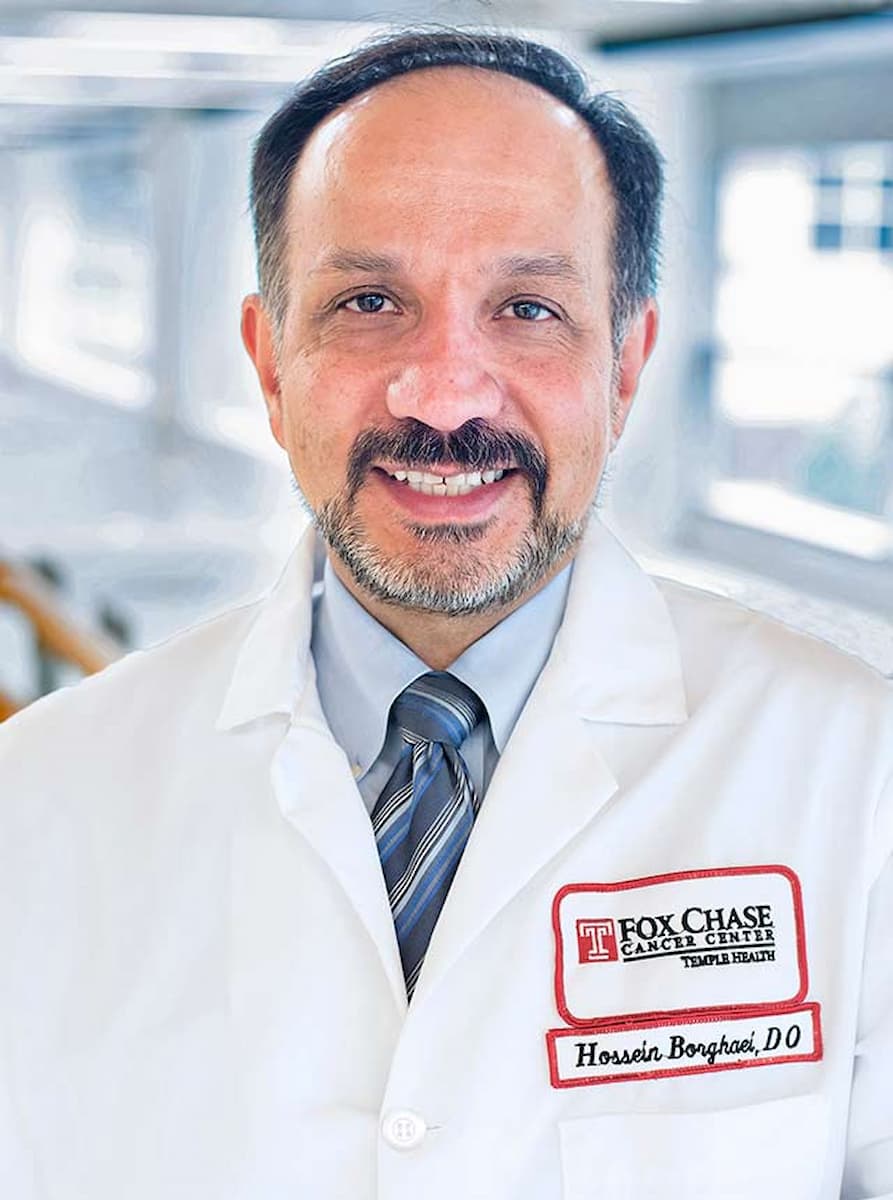
Hossein Borghaei, DO, MS, Expresses Interest in DESTINY-Lung-1 Trial of Trastuzumab Deruxtecan in NSCLC

CancerNetwork® sat down with Hossein Borghaei, DO, MS, to talk about the findings of the DESTINY-Lung01 study that were presented at 2021 ESMO.
CancerNetwork® spoke with Hossein Borghaei, DO, MS, of the Fox Chase Cancer Center and Thoracic Malignancies Chair for the journal ONCOLOGY®, about the
Transcript:
What has caught my attention between the [European Society for Medical Oncology Congress and the World Conference on Lung Cancer meetings was] the DESTINY-Lung01 study using an antibody-drug conjugate to target HER2-mutations in lung cancer. This single-agent drug, after being evaluated in about 90 patients is showing a response rate of about 55% and a progression-free survival that’s very reasonable. It looks like it’s an active agent. HER2 mutations don’t happen very often in lung cancer, at about 2% to 4% of our patients with adenocarcinoma, but it is a patient population for whom we need better treatment options. We are identifying these patients because everybody is doing comprehensive molecular testing now, so we see them in our clinics.
There’s always been a debate as to what would be the most appropriate therapy for this patient population. This antibody-drug conjugate is promising. Now, unfortunately, it does come with some [adverse] effects and one that was seen in roughly 25% of patients was pneumonitis. It’s an [adverse] effect that we’re familiar with in terms of a number of drugs in lung cancer that can cause pneumonitis. Nonetheless, the exact mechanism is not known; 25% is a fairly high rate. We do have to be on the lookout for this if this drug makes it to the clinical practice. Again, I think it’s a promising drug for a patient in need of better treatment options, but toxicities have to be balanced with the clinical efficacy
The data sets are still small with 90 patients or so. Generating additional information in this setting and trying to figure out if there are specific either clinical parameters or prior treatment history or something else that contributes to the development and pneumonitis will help us use this in the clinic better.
I wouldn’t be surprised if we see some protocols trying to take this to the frontline setting. Right now, I’m excited about it and I’m hoping that more data will come out. There were several other interesting abstracts [from the conferences], but this one caught my attention because we’ve been following the clinical development of this drug and about a year ago we had data on about 45 patients where it looked good and promising. Now, we have data on 90 patients, again looking very good and promising. We’ll see if we can build on that.
Reference
Li BT, Smit EF, Goto Y, et al. Trastuzumab Deruxtecan in HER2-Mutant Non-Small-Cell Lung Cancer. N Engl J Med. Published Online September 18, 2021. doi:10.1056/NEJMoa2112431
Newsletter
Stay up to date on recent advances in the multidisciplinary approach to cancer.





































